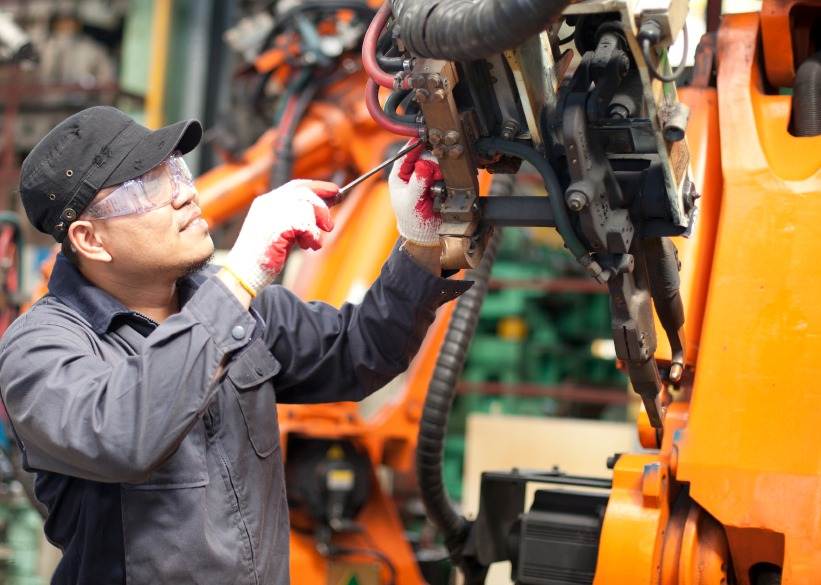24 November 2016
Caring, progressive Left-wing Australians have forgotten about the working classes, argues Dennis Glover on The Ethics Centre blog.
In The Road to Wigan Pier, George Orwell observed that it was far easier for a Bishop to relate to a tramp than to a solid member of the working class. The poverty of the former was wholly obvious, and one could easily enter into his world by tramping with him and offering him a bowl of soup, but entering into the homes and culture of the latter was almost impossible. In Australia today we might put it differently: it’s often easier for an educated ‘progressive’ to relate to a refugee or an Indigenous person or an LGBTI person than to someone in a Housing Commission suburb.
This is understandable and even laudable. After all, it’s the mark of a civilised community to treat others – even those least like us – with respect and to prioritise those whose needs are the most obvious and urgent. This way of thinking has become increasingly central to our liberal culture.
For example, I have before me a scholarship guide (really an advertising supplement) for some of the nation’s wealthiest private schools. In it you will find scholarships specifically targeted at diverse categories of people whose moral call on us is obvious, but none targeted at children from the old factory suburbs with high unemployment. The closest we get are vague references to help for ‘the children of families who require financial assistance’, which could mean just about anything.
Without noticing it, and often with the very best of intentions, we have stopped thinking and talking about the working class. When I recently wrote a book about one of our most neglected former Housing Commission suburbs, I was surprised at the consternation – even offense – it generated, particularly on the Left, so unusual has it now become to discuss such things. It has taken the shock of recent overseas events for such discussion to become obvious and acceptable.
This seems to me somewhat extraordinary given there are now numerous suburbs in Australia where the unemployment rate has been at 20, 21, 22 and even 33.6 percent for a decade or more. That we have been able to almost completely ignore this level of economic injustice for so long tells us something about how much our way of thinking has changed, amounting almost to a moral blindness. The coming closure of car factories and coal fired power plants across Victoria and South Australia will only make this worse, creating our own versions of America’s rust belt.
These days, it seems, one can be a self-identifying ‘progressive’ without giving much thought at all to what’s happening to the workers and the unemployed. The implication is they represent our economic past, and are therefore not wholly worthy of serious thought. Scratch a socially-progressive economist and you may well find someone who thinks saving manufacturing jobs to be a doubtful investment – perhaps it’s better for the general good such people and places be allowed to quietly disappear. The problem, as Britain and America shows, is they don’t disappear. They collapse in on themselves and get angry.
The way the culture wars have poisoned our political debates means this sort of thing isn’t easy to say without opening oneself up to some charge of illiberalism, so let me be clear: we should treat refugees more humanely, keep aggressively closing the gap between Indigenous and non-Indigenous Australians and keep expanding the circle of rights to include new categories of difference, but we must also talk about what’s happening to the old working class. We can do all these things simultaneously but at the moment we are not.
Every day this ignoring of the old working class becomes a bigger problem for our democracy. As Brexit and Donald Trump’s victory demonstrate, in an economy that is restructuring, populists will eagerly pounce and turn the sense of neglect felt by ‘the forgotten’ into envy and resentment. The resuscitation of Pauline Hanson’s One Nation Party shows it may be happening here too. We need to advance on a broader front.
If you want to know why Australia is currently having a debate about Section 18C of the Race Discrimination Act, it’s partly because those who seek to exploit this envy and resentment need to remove laws which restrain the full expression of these negative emotions. The attacks on 18C and the fate of the old working class are ultimately connected.
Some argue the Left’s response must be to abandon what is commonly dismissed as ‘the rights agenda’ and take a more populist stand. This is wrong. The Left, which has traditionally been both liberal and social-democratic, shouldn’t downplay its liberalism but, rather, give new life to the social-democratic half of its equation, which it has been neglecting for too long. This doesn’t mean looking backwards. It means thinking through how our older industrial communities can be revived to take advantage of economic restructuring – instead of treating their interests as an irritating afterthought.
What form this modernised social-democracy will take is as yet to be determined but one thing is clear: it has to start with a moral effort to know what’s going on in the lives of people in the places where we stopped looking a generation ago, and it needs to be followed by a public policy effort that matches the scale of the problem.

